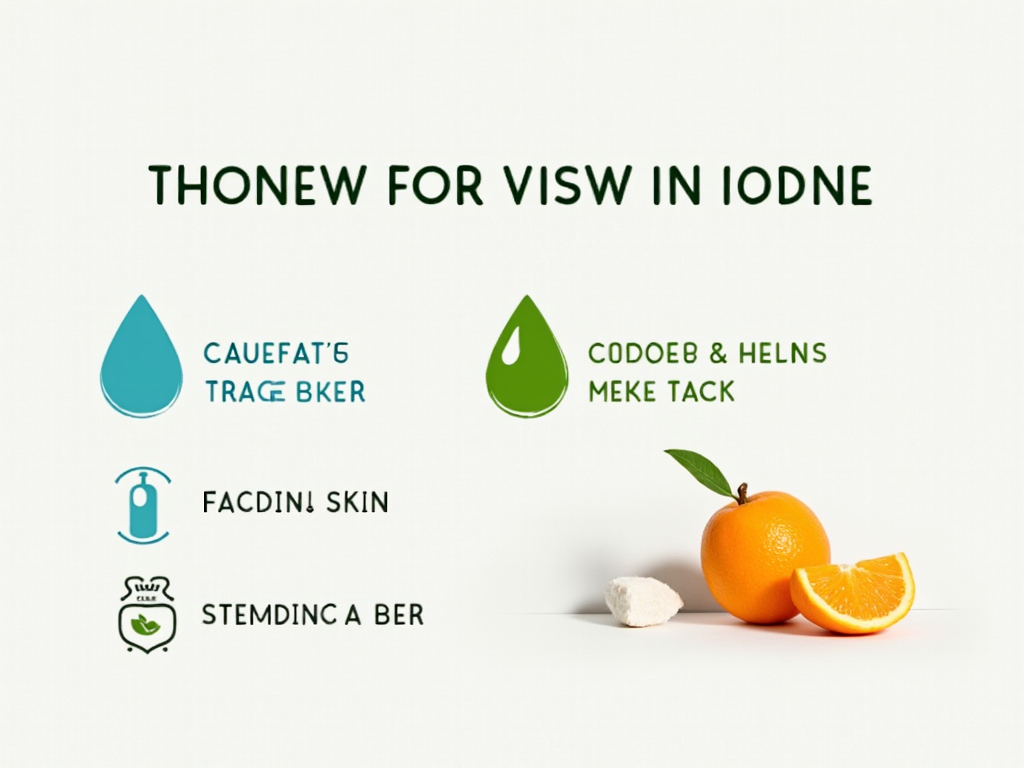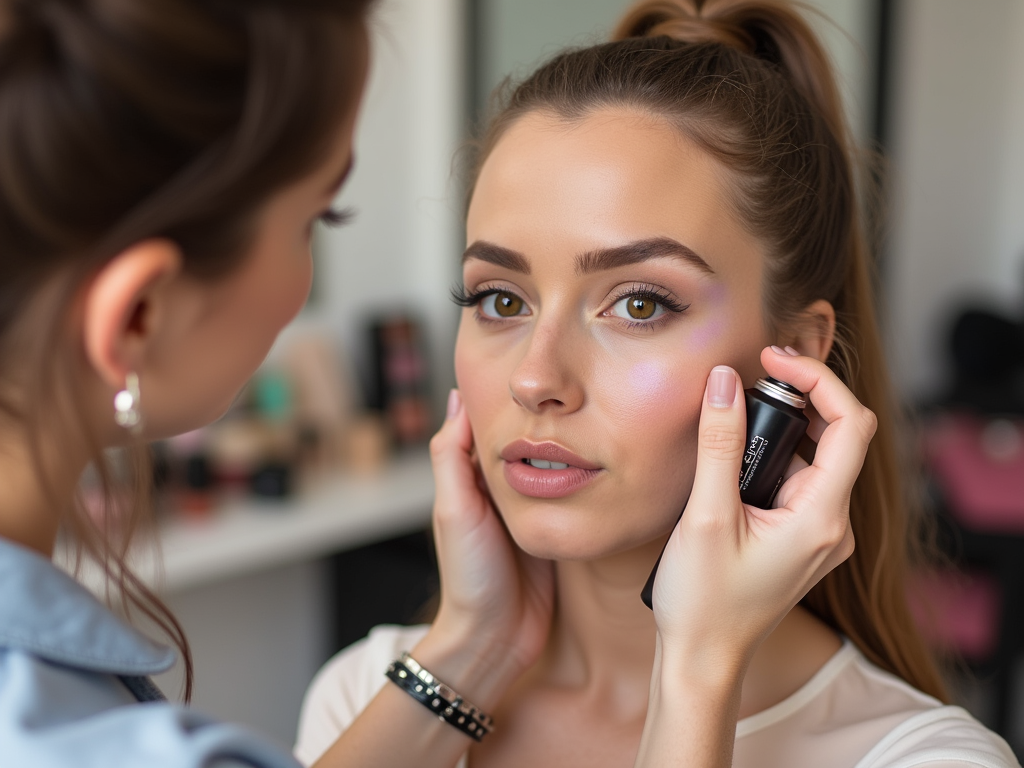Iodine, often recognized for its role in maintaining thyroid health, has emerged as a powerhouse in skincare, captivating the attention of beauty enthusiasts and holistic health advocates alike. This trace element is not just vital for your body’s internal systems, but it also offers remarkable benefits for skin health. With the surge in focus on natural remedies and the quest for effective, non-toxic cosmetics, iodine has gained acclaim for its multifaceted healing properties. As consumers increasingly seek clean and effective solutions, understanding the benefits of iodine for skin can pave the way for healthier, more radiant skin. Let’s dive into how this essential element can transform your skincare regimen and explore its various applications.
The beauty industry is flooded with countless products claiming to offer miraculous benefits, yet many overlook the simplicity and efficacy of iodine. The antioxidant, antimicrobial, and healing properties of iodine make it a formidable ally in your quest for optimal skin health. From assisting in wound healing to managing oil production, iodine presents a compelling case as a must-have ingredient in your daily routine. Not only does it address common skin issues, but it also fosters a balanced environment for achieving clear and vibrant skin.
What is Iodine?

Iodine is a trace element that is essential for various bodily functions, especially the production of thyroid hormones, which are crucial for metabolism and overall health. However, its benefits extend beyond the internal processes. Several foods are rich in iodine, including seaweed, certain fish, dairy products, and iodized salt. The body requires a sufficient amount of iodine to remain healthy, and an imbalance can lead to both metabolic and dermatological issues.
Since the body cannot synthesize iodine naturally, it is necessary to obtain it through diet or supplementation. For individuals looking to enhance their aesthetic well-being, incorporating iodine through food and topical applications can be immensely beneficial. It’s important to understand how to harness these benefits effectively without overwhelming the body with excess amounts.
Benefits of Iodine for Skin Health

Promotes Wound Healing
Iodine is renowned for its role in wound care, as it significantly aids in tissue repair and regeneration. It creates a moist environment that fosters faster healing whereas preventing infection due to its strong antimicrobial properties. By promoting cell growth and reducing inflammation, iodine encourages the skin to recover more swiftly after injuries or irritations. Medical professionals often use iodine-based treatments for cuts, scrapes, and surgical wounds, emphasizing its effectiveness.
Balances Skin Oil Production
One of the lesser-known benefits of iodine relates to its ability to regulate sebum production. Balanced oil levels are critical in preventing issues such as acne and clogged pores. Iodine acts by optimizing the skin’s natural oil production mechanisms, leading to a clearer complexion. This balance not only helps keep acne at bay but also prevents excessive dryness associated with many skin conditions.
Provides Antimicrobial Properties
Another significant advantage of iodine is its potent antimicrobial nature. It fights off a broad spectrum of bacteria, fungi, and viruses, making it an excellent choice for maintaining skin clarity. Incorporating iodine into your skincare routine can protect against common skin issues stemming from pathogenic organisms. Additionally, it helps in combating the adverse effects of pollution, dirt, and other environmental aggressors.
| Benefit | Description |
|---|---|
| Wound Healing | Accelerates tissue repair and minimizes infection risks. |
| Oil Regulation | Balances sebum production to reduce breakouts. |
| Antimicrobial Action | Effective against bacteria and other pathogens. |
| Thyroid Support | Influences hormonal balance and skin metabolism. |
Supports Thyroid Function
Iodine is a crucial element for the proper functioning of the thyroid gland, which is responsible for producing hormones that regulate metabolism. A well-functioning thyroid can significantly impact skin appearance, as imbalances can lead to various skin issues such as dryness, sensitivity, and premature aging. By ensuring adequate iodine intake, you are supporting not only your metabolic processes but also keeping your skin vibrant and healthy.
How to Use Iodine for Your Skin
Topical Applications
For topical usage, iodine tinctures or iodine-based creams can be beneficial. Apply a small amount to the affected area using a clean cotton swab or pad. Always remember to perform a patch test to prevent adverse reactions, especially if you have sensitive skin. Start with a diluted solution or lower concentrations to gauge how your skin reacts and gradually increase if necessary.
Dietary Incorporation
In addition to topical applications, you can also benefit from consuming iodine-rich foods. Here’s a list of foods you might consider adding to your diet:
- Seaweed (e.g., nori, kelp)
- Fish (e.g., cod, tuna)
- Dairy products (e.g., milk, yogurt)
- Eggs
- Iodized salt
When introducing iodine through diet, it’s important to consult a healthcare professional, especially regarding recommended dosages. They can help you navigate your individual needs based on health status and lifestyle.
Safety Precautions
While iodine possesses numerous benefits, excessive use can lead to adverse effects such as skin irritation, redness, or dryness. Following recommended guidelines is essential for both topical and dietary iodine applications. Be mindful of how frequently you apply iodine products, and consider starting small before gradually increasing usage based on how your skin responds.
Conclusion
As we’ve explored, iodine offers a myriad of benefits for your skin health, from promoting healing to regulating oil production effectively. Incorporating iodine into your skincare routine and diet can elevate your beauty regimen significantly. By understanding its properties, you can take informed steps to achieve clearer, healthier skin. Embracing the natural power of iodine symbolizes a shift towards more holistic skincare practices, reinforcing the idea that nature often holds the keys to our greatest beauty secrets.
Frequently Asked Questions
- What are the main benefits of using iodine on the skin? Iodine promotes wound healing, balances oil production, and provides antimicrobial properties.
- Can I use iodine if I have sensitive skin? Yes, but it’s important to do a patch test first to avoid irritation.
- How often should I apply iodine to my skin? It’s recommended to use it sparingly, starting with once every few days, and adjust based on skin response.
- Are there any side effects of using iodine on the skin? Potential side effects may include skin irritation, redness, or dryness, especially with excessive use.
- Is dietary iodine enough for skin benefits? A balanced diet high in iodine-rich foods can support skin health, but topical applications may enhance benefits, especially for wound healing.



